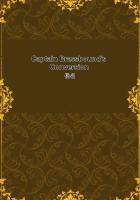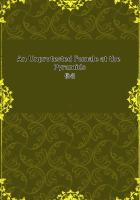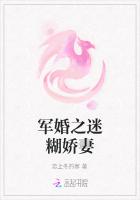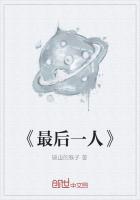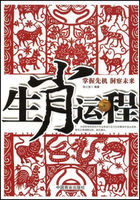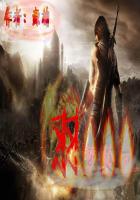Mr. Montagu tells us, most justly, that we ought not to transfer the opinions of our age to a former age. But he has himself committed a greater error than that against which he has cautioned his readers. Without any evidence, nay, in the face of the strongest evidence, he ascribes to the people of a former age a set of opinions which no people ever held. But any hypothesis is in his view more probable than that Bacon should have been a dishonest man. We firmly believe that, if papers were to be discovered which should irresistibly prove that Bacon was concerned in the poisoning of Sir Thomas Overbury, Mr. Montagu would tell us that, at the beginning of the seventeenth century, it was not thought improper in a man to put arsenic into the broth of his friends, and that we ought to blame, not Bacon, but the age in which he lived.
But why should we have recourse to any other evidence, when the proceeding against Lord Bacon is itself the best evidence on the subject? When Mr. Montagu tells us that we ought not to transfer the opinions of our age to Bacon's age, he appears altogether to forget that it was by men of Bacon's own age, that Bacon was prosecuted, tried, convicted, and sentenced. Did not they know what their own opinions were? Did not they know whether they thought the taking of gifts by a judge a crime or not? Mr. Montagu complains bitterly that Bacon was induced to abstain from making a defence. But, if Bacon's defence resembled that which is made for him in the volume before us, it would have been unnecessary to trouble the Houses with it. The Lords and Commons did not want Bacon to tell them the thoughts of their own hearts, to inform them that they did not consider such practices as those in which they had detected him as at all culpable. Mr. Montagu's proposition may indeed be fairly stated thus:--It was very hard that Bacon's contemporaries should think it wrong in him to do what they did not think it wrong in him to do. Hard indeed; and withal somewhat improbable. Will any person say that the Commons who impeached Bacon for taking presents, and the Lords who sentenced him to fine, imprisonment, and degradation for taking presents, did not know that the taking of presents was a crime?
Or, will any person say that Bacon did not know what the whole House of Commons and the whole House of Lords knew? Nobody who is not prepared to maintain one of these absurd propositions can deny that Bacon committed what he knew to be a crime.
It cannot be pretended that the Houses were seeking occasion to ruin Bacon, and that they therefore brought him to punishment on charges which they themselves knew to be frivolous. In no quarter was there the faintest indication of a disposition to treat him harshly. Through the whole proceeding there was no symptom of personal animosity or of factious violence in either House.
Indeed, we will venture to say that no State-Trial in our History is more creditable to all who took part in it, either as prosecutors or judges. The decency, the gravity, the public spirit, the justice moderated but not unnerved by compassion, which appeared in every part of the transaction, would do honour to the most respectable public men of our own times. The accusers, while they discharged their duty to their constituents by bringing the misdeeds of the Chancellor to light, spoke with admiration of his many eminent qualities. The Lords, while condemning him, complimented him on the ingenuousness of his confession, and spared him the humiliation of a public appearance at their bar. So strong was the contagion of good feeling that even Sir Edward Coke, for the first time in his life, behaved like a gentleman. No criminal ever had more temperate prosecutors than Bacon. No criminal ever had more favourable judges. If he was convicted, it was because it was impossible to acquit him without offering the grossest outrage to justice and common sense.
Mr. Montagu's other argument, namely, that Bacon, though he took gifts, did not take bribes, seems to us as futile as that which we have considered. Indeed, we might be content to leave it to be answered by the plainest man among our readers. Demosthenes noticed it with contempt more than two thousand years ago.
Latimer, we have seen, treated this sophistry with similar disdain. "Leave colouring," said he, "and call these things by their Christian name, bribes." Mr. Montagu attempts, somewhat unfairly, we must say, to represent the presents which Bacon received as similar to the perquisites which suitors paid to the members of the Parliaments of France. The French magistrate had a legal right to his fee; and the amount of the fee was regulated by law. Whether this be a good mode of remunerating judges is not the question. But what analogy is there between payments of this sort, and the presents which Bacon received, presents which were not sanctioned by the law, which were not made under the public eye, and of which the amount was regulated only by private bargain between the magistrate and the suitor?
Again, it is mere trifling to say that Bacon could not have meant to act corruptly, because he employed the agency of men of rank, of bishops, privy councillors, and members of Parliament; as if the whole history of that generation was not full of the low actions of high people; as if it was not notorious that men, as exalted in rank as any of the decoys that Bacon employed, had pimped for Somerset, and poisoned Overbury.

